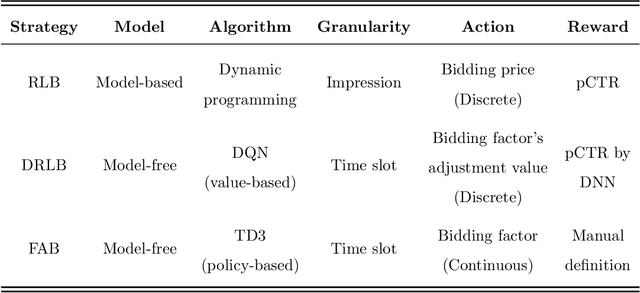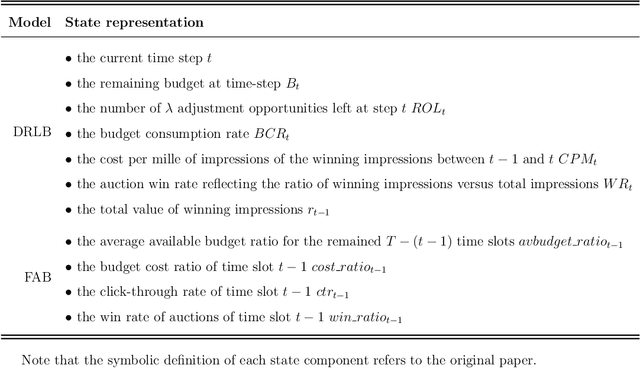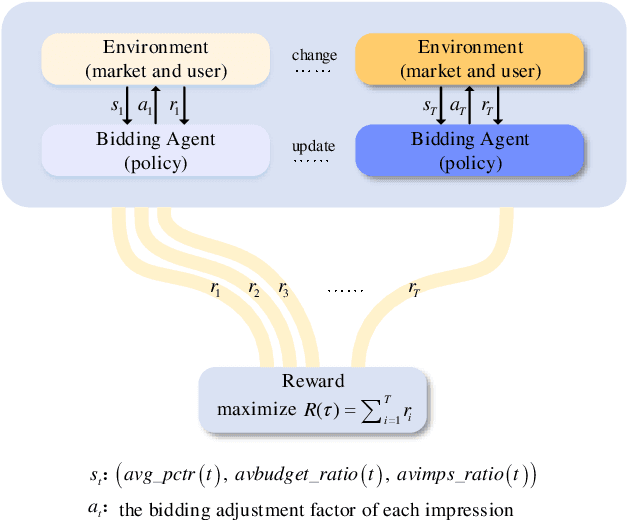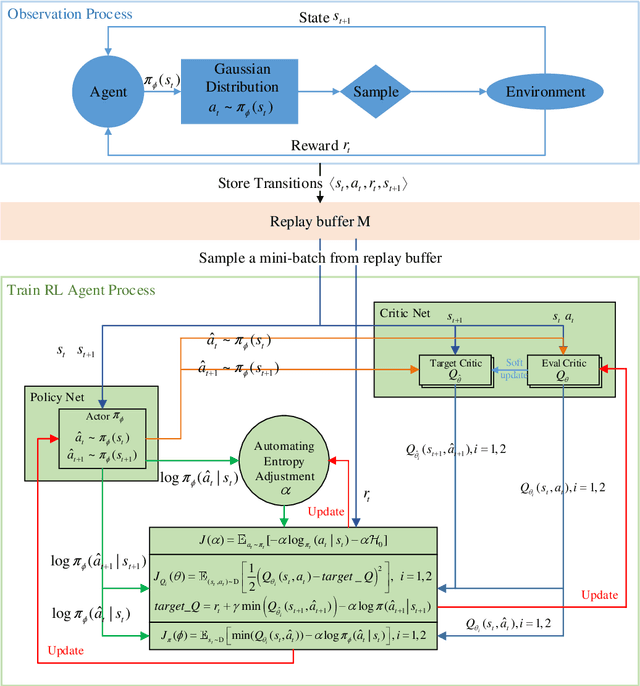Zhengning Hu
Real-time Bidding Strategy in Display Advertising: An Empirical Analysis
Nov 30, 2022



Abstract:Bidding strategies that help advertisers determine bidding prices are receiving increasing attention as more and more ad impressions are sold through real-time bidding systems. This paper first describes the problem and challenges of optimizing bidding strategies for individual advertisers in real-time bidding display advertising. Then, several representative bidding strategies are introduced, especially the research advances and challenges of reinforcement learning-based bidding strategies. Further, we quantitatively evaluate the performance of several representative bidding strategies on the iPinYou dataset. Specifically, we examine the effects of state, action, and reward function on the performance of reinforcement learning-based bidding strategies. Finally, we summarize the general steps for optimizing bidding strategies using reinforcement learning algorithms and present our suggestions.
Bid Optimization using Maximum Entropy Reinforcement Learning
Oct 11, 2021



Abstract:Real-time bidding (RTB) has become a critical way of online advertising. In RTB, an advertiser can participate in bidding ad impressions to display its advertisements. The advertiser determines every impression's bidding price according to its bidding strategy. Therefore, a good bidding strategy can help advertisers improve cost efficiency. This paper focuses on optimizing a single advertiser's bidding strategy using reinforcement learning (RL) in RTB. Unfortunately, it is challenging to optimize the bidding strategy through RL at the granularity of impression due to the highly dynamic nature of the RTB environment. In this paper, we first utilize a widely accepted linear bidding function to compute every impression's base price and optimize it by a mutable adjustment factor derived from the RTB auction environment, to avoid optimizing every impression's bidding price directly. Specifically, we use the maximum entropy RL algorithm (Soft Actor-Critic) to optimize the adjustment factor generation policy at the impression-grained level. Finally, the empirical study on a public dataset demonstrates that the proposed bidding strategy has superior performance compared with the baselines.
 Add to Chrome
Add to Chrome Add to Firefox
Add to Firefox Add to Edge
Add to Edge